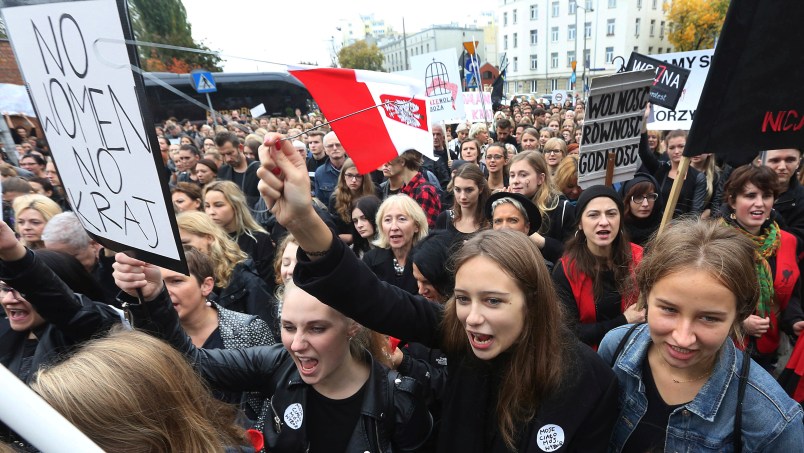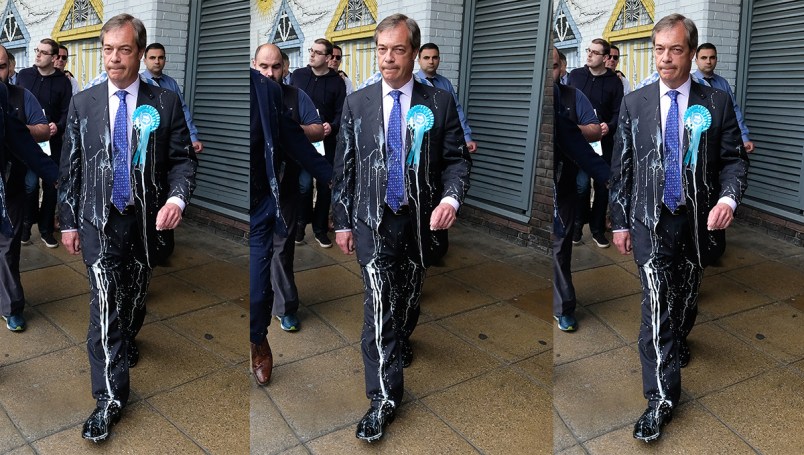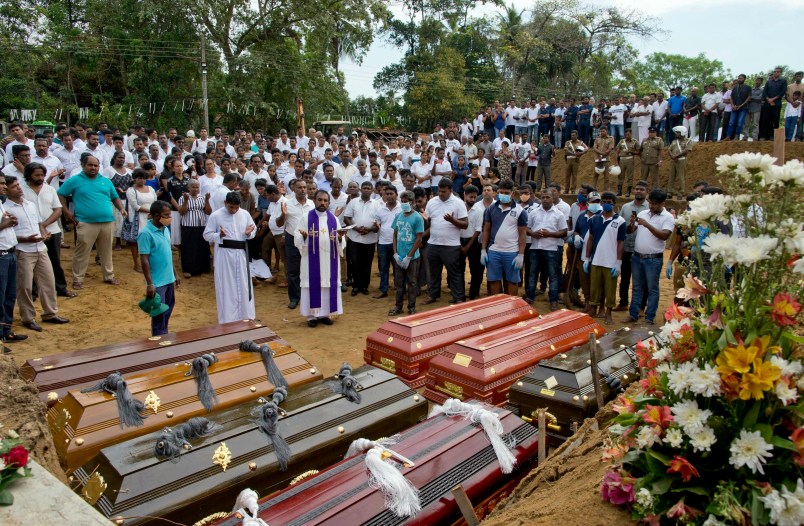WARSAW, Poland (AP) — Polish women donned black, waved black flags and took to Poland’s streets in large numbers on Monday, boycotting jobs and classes as part of a nationwide strike to protest a legislative proposal for a total ban on abortion.
Many men — including public figures — joined the thousands of women on the streets of Warsaw, Gdansk, Wroclaw and elsewhere across the largely Catholic nation on what was dubbed “Black Monday.” The country already has one of Europe’s most restrictive abortion laws and opinion surveys show very little support for an even stricter law, despite the nation’s deep Catholicism and conservative political direction.
Those who support abortion rights hailed the huge show of anger as a big success. Some voiced hope that it could weaken the hold of Poland’s right-wing ruling party, Law and Justice, which has courted controversy during its nearly one year in power by weakening the judiciary and pushing a Catholic worldview that has alienated secular Poles and liberals.
“I am very happy. This is the beginning of something,” said one of the protesters in Warsaw, Elzbieta Turczynska. “I treat it as the end of some era, hopefully a very short one, but a really dangerous one for us.”
Though the day was mostly peaceful, police arrested three people in Poznan for throwing rocks at the Law and Justice party headquarters in that city, an incident that injured three police officers. In Warsaw, police detained four men who threw objects at police officers.
Protesters rallied in other European cities in a show of solidarity, including in Brussels, where there was a picket in front of the European Union offices with banners reading “No to the abortion ban.”
Women wore black in a sign of mourning for the feared loss of reproductive rights and for the deaths that they feel some women would face.
Under the existing law, a hard-won compromise between liberals and the church in force since 1993, abortion is banned except in cases where the woman’s life is in danger, the fetus is irreparably damaged or the pregnancy results from rape or incest.
The new proposal, now being examined by a parliamentary commission, would make all abortions illegal, even in cases of rape or when the woman’s life is at risk, with prison terms of up to five years for women seeking abortion and doctors who perform them.
The proposal for the stricter law came from an anti-abortion citizens’ initiative that had gathered 450,000 signatures in this nation of 38 million, and is supported by the church. The conservative ruling party, Law and Justice, which has a majority in parliament, includes supporters of the proposal but it’s not clear if there are enough to push it through.
Foreign Minister Witold Waszczykowski criticized the way protesters were expressing their views, telling reporters in Warsaw: “We expect serious debate on questions of life, death and birth. We do not expect happenings, dressing in costumes and creating artificial problems.”
There were also counter protests Monday, with people attending special Masses held in shows of support for the abortion ban. At one in Lodz, Archbishop Marek Jedraszewski, denounced the protests as a manifestation of a “civilization of death.”
A day of protests culminated in a huge rally in the afternoon in the heart of Warsaw’s historic Old Town, with thousands braving the rain to form a sea of figures in black packed tightly together, the only color provided by their umbrellas. Police estimated the crowd size there at 17,000, while city hall put the number at 30,000.
In downtown Warsaw, some small shops were closed, with signs on their doors saying they were observing the strike, while in many places women showed up to work in black clothing. Coffee shops were filled with groups of women dressed head to toe in black.
One was 34-year-old banker Agnieszka Krysztopolska, who sat in a Starbuck’s shop with several friends who were all boycotting work.
“I have two children and it’s not like I am some kind of hardline feminist but I do not agree with somebody depriving me of the right to my own health or that of my children. I think this bill is just dangerous,” she said.
The private all-news broadcaster, TVN24, broadcast images of establishments in other cities joining the strike: a restaurant in Wroclaw that closed to let female employees participate, a museum in Krakow where none of the women showed up to work.
In Warsaw a popular actor and theater director, Michal Zebrowski, dressed in black, was in the box office selling tickets to allow the clerk to take part in the protest.
The organizers of Monday’s strike took their inspiration from a strike by women in Iceland in 1975 when 90 percent of women refused to work, clean or look after children, to voice anger at discrimination in the workplace. A law the following year guaranteed equal rights for men and women.
_____
This story corrects that the Catholic prelate who denounced the “civilization of death” was Archbishop Marek Jedraszewski of Lodz, not Archbishop Henryk Hoser of Warsaw.
Copyright 2016 The Associated Press. All rights reserved. This material may not be published, broadcast, rewritten or redistributed.






